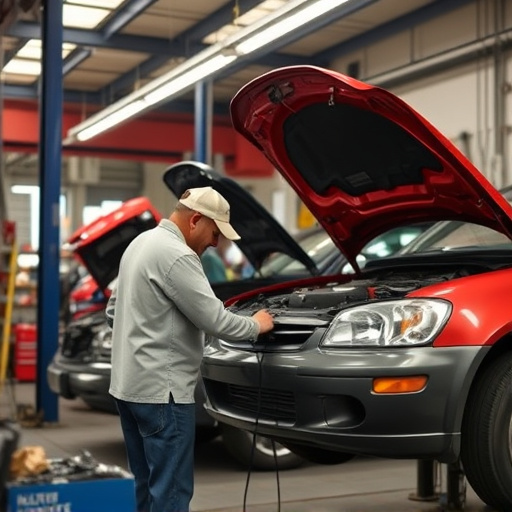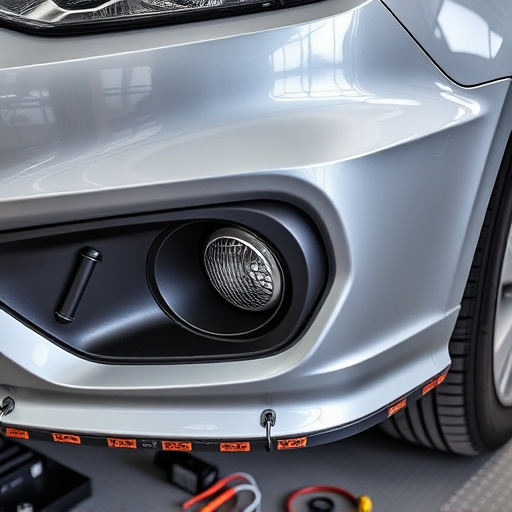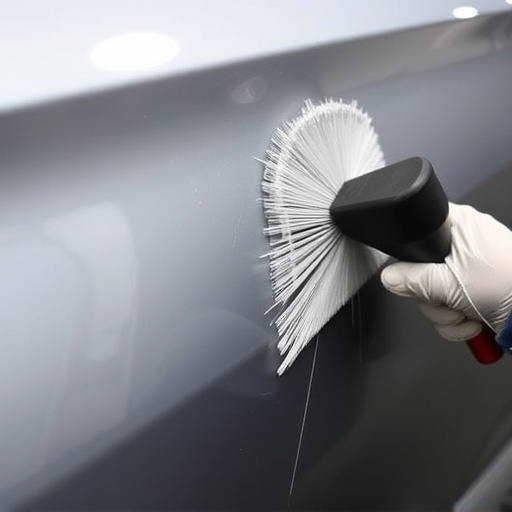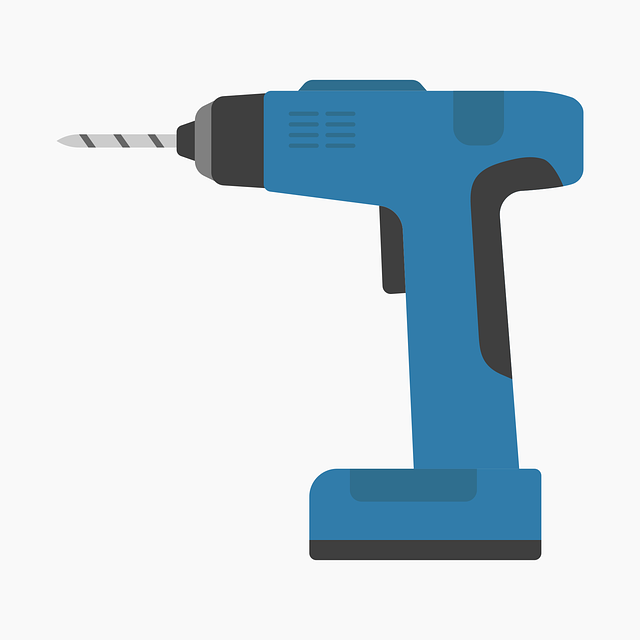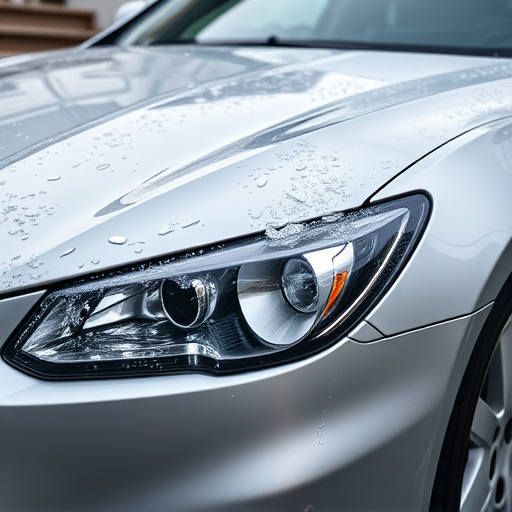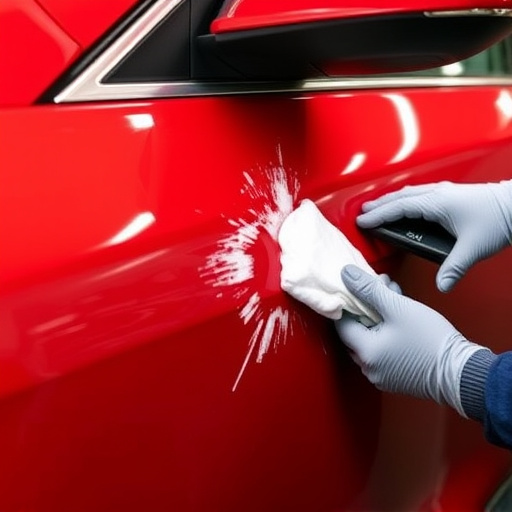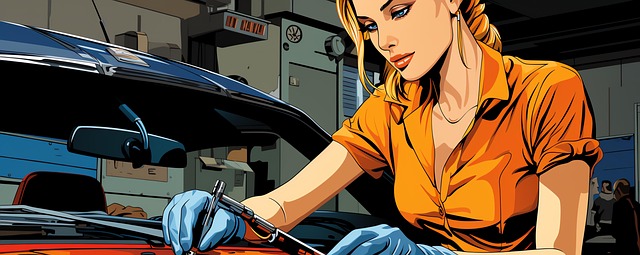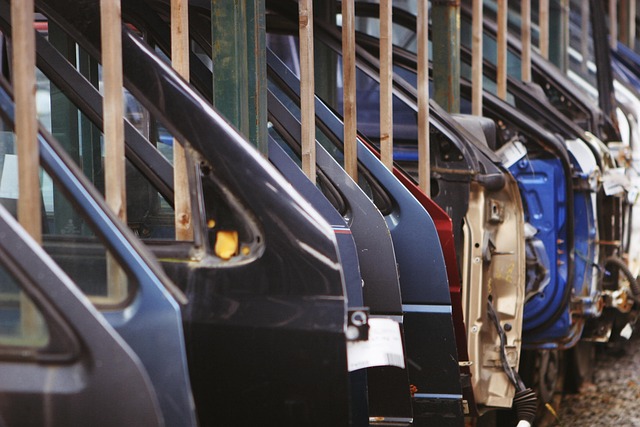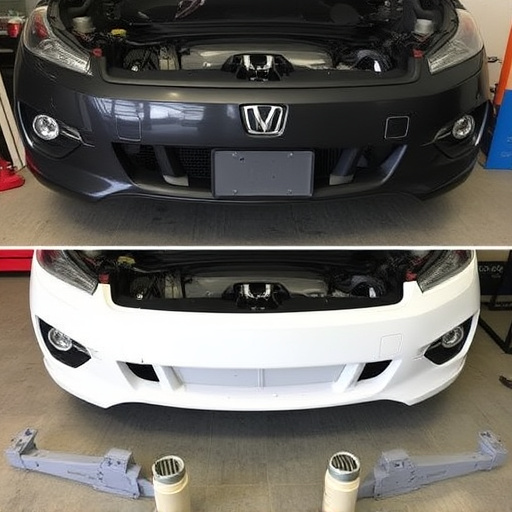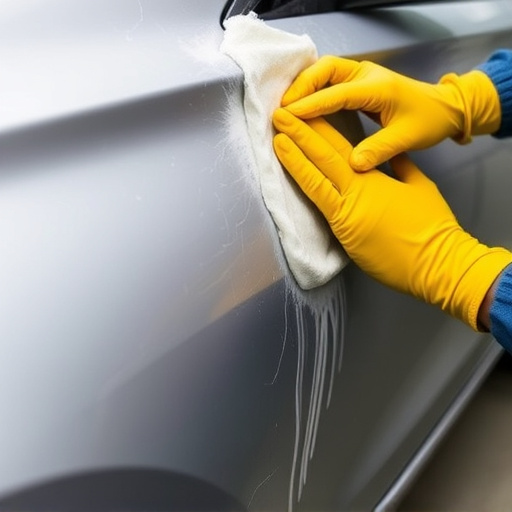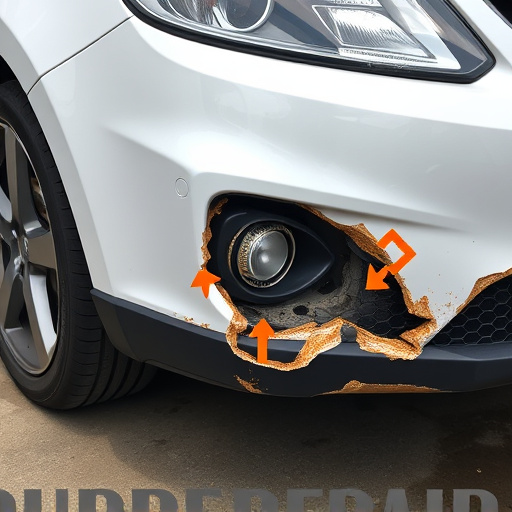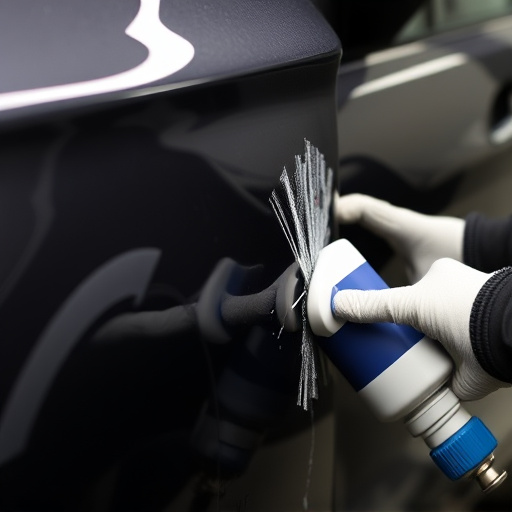Passenger van body repair remains critical in 2025 due to their robust construction and versatile use, with strict safety regulations driving precise, structural repairs. Skilled technicians prioritize original aesthetics and sustainability through advanced paint methods. Specialized body shops offer cost-effective solutions, repairing rather than replacing damaged bodies, saving clients money while promoting eco-friendliness by reducing waste and resource consumption.
In 2025, passenger van body repair remains a vital aspect of modern transport. Despite advancements in vehicle technology, vans continue to be indispensable for cargo and passenger hauling due to their versatility and cost-effectiveness. This article explores why passenger van body repair is far from obsolete. We delve into the enduring utility of these vehicles, safety regulations guiding repairs, and the cost-effective benefits from a repairer’s perspective, emphasizing the importance of skilled craftsmanship in keeping them on the road.
- Enduring Utility of Passenger Vans in Modern Transport
- Safety and Regulatory Considerations for Body Repairs
- Cost-Effectiveness and Longevity: A Repairer's Perspective
Enduring Utility of Passenger Vans in Modern Transport
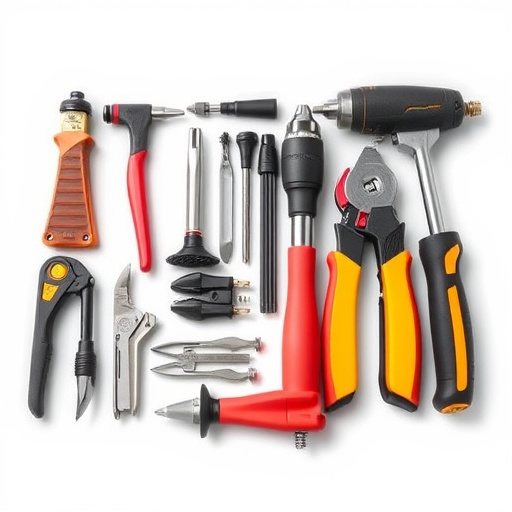
Passenger vans have remained an integral part of modern transportation, despite the rise of more specialized vehicles. Their versatility and durability make them a preferred choice for various sectors, from logistics and ride-sharing to community transport and emergency services. In 2025, the demand for reliable passenger vans is still strong, ensuring a consistent need for quality passenger van body repair services.
The robust construction of these vehicles lends itself well to collision repair, with many parts designed to absorb impact, enhancing passenger safety. While advancements in automotive technology have introduced more advanced materials and designs, the fundamental structure and layout of passenger vans often allow for more cost-effective repairs compared to other vehicle types, making them a viable option for businesses looking to minimize downtime and maintenance costs through efficient automotive body work.
Safety and Regulatory Considerations for Body Repairs
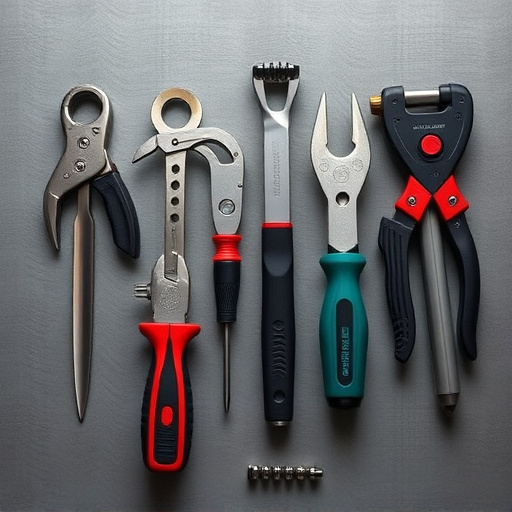
In the ever-evolving automotive landscape, safety remains the paramount concern for any vehicle repair, particularly in the case of passenger vans. As we move into 2025, strict regulations continue to shape the standards for car bodywork and passenger van body repair, ensuring that vehicles on the road meet stringent safety criteria. These guidelines are designed to protect not only the well-being of drivers but also passengers and other road users.
The process of passenger van body repair involves meticulous techniques to ensure structural integrity and aesthetic appeal. Skilled technicians employ advanced car paint repair methods to match the original factory finish, preserving the vehicle’s overall value. Moreover, with a focus on sustainability, modern car bodywork repairs often incorporate eco-friendly practices, aligning with the growing demand for environmentally conscious automotive solutions.
Cost-Effectiveness and Longevity: A Repairer's Perspective
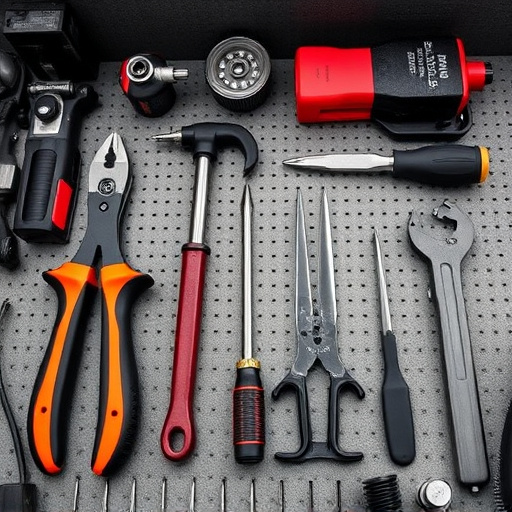
In the competitive landscape of automotive services, passenger van body repair remains a vital service that offers significant cost-effectiveness and longevity for businesses and fleet owners. Reputable vehicle body shops specializing in this field understand that repairing rather than replacing damaged van bodies is not only environmentally responsible but also pocket-friendly for their clients. By utilizing advanced techniques and high-quality parts, these experts can restore vans to their original condition, ensuring they remain roadworthy for years to come.
Compared to purchasing a new vehicle, which can be a substantial financial burden, investing in passenger van body repair can deliver remarkable savings. Moreover, restoring damaged vehicles promotes sustainability by reducing the demand for new metal and components. Top-tier car repair shops cater to this need by providing exceptional vehicle restoration services, ensuring that clients’ vans not only look as good as new but also retain their structural integrity. This approach not only benefits businesses with cost savings but also contributes to a greener future through responsible waste reduction and resource utilization.
In 2025, the significance of passenger van body repair remains unwavering. Despite advancements in vehicle technology, the enduring utility of passenger vans in modern transport ensures their ongoing relevance. Regulatory considerations and safety standards continue to shape best practices for body repairs, guaranteeing the longevity and safety of these versatile vehicles. For repairers, cost-effectiveness and environmental sustainability remain key drivers, fostering innovative solutions that enhance both the process and the end product. Thus, as we move forward, passenger van body repair persists as a critical aspect of vehicle maintenance, catering to the diverse needs of today’s transport landscape.
